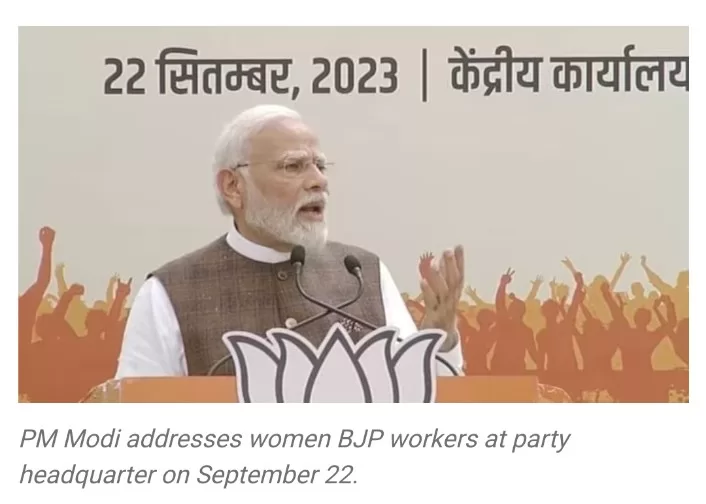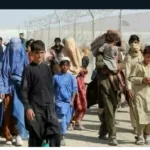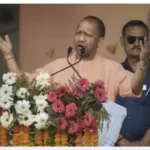In a poignant address, Prime Minister Narendra Modi has accused the opposition of engaging in efforts to divide the nation along caste lines. This statement followed shortly after the Bihar government’s release of a comprehensive caste-based survey report. While not explicitly mentioning the survey or any specific political party, PM Modi launched a scathing critique at the opposition, particularly in poll-bound Madhya Pradesh. He criticized their inability to achieve developmental progress during their tenures and chastised them for what he described as “playing with the sentiments of the underprivileged.”
PM Modi asserted that the opposition had previously manipulated the emotions of the economically disadvantaged and continues to do so today. He underscored that, in the past, they had sown divisions based on caste identity and are currently committing the same transgression. The Prime Minister categorically condemned any attempts to sow division along caste lines as a moral offense.
Many observers interpret PM Modi’s remarks as a two-fold critique, directed at the ruling Janata Dal (United) in Bihar, a former BJP ally, as well as the Congress, the primary opposition party in Madhya Pradesh. The Congress party has pledged to conduct a similar caste-based survey should they return to power after the upcoming elections later this year. Rahul Gandhi, vocal on the necessity of a caste census, recently stated, “After coming to power, the first thing we will do is to conduct a caste-based census to ascertain the exact number of Other Backward Classes (OBCs).”
In response to the Bihar government’s survey report, Rahul Gandhi reiterated the Congress party’s demand for a national caste census to be conducted by the central government. The Congress party highlighted that the UPA government had completed such a census, although its results were not published during the Modi government’s tenure. The Congress argued that a caste-based census is crucial for establishing a robust foundation for social empowerment programs and promoting social justice.
Pressure on the BJP to conduct a nationwide caste census is expected to intensify in the wake of the Bihar government’s report. The report indicated that approximately 63% of Bihar’s population belongs to backward classes, with over 20% classified as Scheduled Castes or Tribes. The “general population,” encompassing upper classes that once dominated Bihar politics, constitutes around 15.5%.
This report has the potential to heighten political tensions, as states advocate for similar surveys, and the opposition calls for a nationwide caste census, a sentiment underscored during the INDIA opposition bloc meeting in Mumbai. Nonetheless, the demand was somewhat diminished when Bengal’s ruling Trinamool refused to support it.
While state and national BJP leaders have not always aligned on this issue, the party’s state unit leader, Samrat Choudhary, expressed that the party will initially “study the methodology.” Notably, former Deputy Chief Minister Sushil Kumar Modi, a key figure in Nitish Kumar’s administration, credited the BJP-JDU Bihar government for initiating the caste survey.
In response to the report’s release, Nitish Kumar, Tejashwi Yadav, and Lalu Prasad Yadav celebrated it as a watershed moment. The Chief Minister intends to convene a meeting of all Assembly parties, including the Prime Minister’s BJP, to discuss the next steps.
This latest caste-based headcount in Bihar represents the first comprehensive survey of its kind since 1931. The Congress-led UPA government conducted a socio-economic caste census in 2011, with the results published five years later. However, caste-related data was omitted and remains unpublished.
Bihar’s completion and publication of the caste-based survey results set a precedent for other states. Karnataka conducted a similar survey in 2014 but did not disclose the data. Telangana announced plans for such a survey in 2021, although it was not executed. Odisha, in the present year, also expressed its intention to conduct a caste-based survey.







